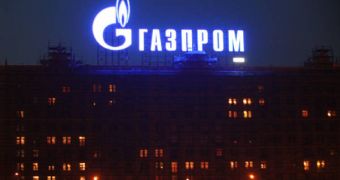The Russian government-held company Gazprom, the world's largest producer of natural gas, and the giant Shell Corporations have only recently signed an agreement that would basically allow the European monopoly to start selling its products on the US market, the largest of the kind in the world. The products will be transported from Russia's far-east coast, at the border with North Korea, to the western coasts of the US, over the Pacific ocean. While the share that Gazprom will have on the American market will not be substantial – only 0.5 percent –, analysts say that this could be a very dangerous precedent.
Gazprom, which holds the monopoly in Russia, and is currently taking on the entire European Union over the issue of pipelines running through southern Europe, will achieve one of its long-standing dreams, namely that of getting a foothold, however tiny, in the US market. The contract has also resolved one of the company's problems, which is the lack of new customers. But, while for Gazprom the move is obviously an excellent choice and an accomplishment, where does this leave the US, analysts ask.
The new President, Barack Obama, has vowed to bring an end to the country's dependency on foreign resources ever since the presidential campaign, and TV ads that ran during and after the elections in a way “mocked” the EU dependency on Russian-supplied gas. Yet, they say, here we are, with the now-infamous catch-line “here we have a choice” blasted to smithereens, WSJ Blogs report.
If Gazprom manages to get a stronger foothold in the US, then the Russian Federation, which owns 50.01 percent of the company's shares, will have an even greater influence worldwide, as it already keeps Europe in check with threats to cut gas supplies if things don't go the way Prime Minister Putin and President Medvedev want to.
As far as the environment goes, opinions are mixed. Some activists maintain that importing cheap and high-quality natural gas from abroad may have a good impact on the climate, as it would make highly polluting, coal-powered electrical plants less profitable. Still, others believe that the increased investments in these methods of producing current would take away much-needed funds from renewable energy enterprises, such as solar power arrays and wind farms.

 14 DAY TRIAL //
14 DAY TRIAL //